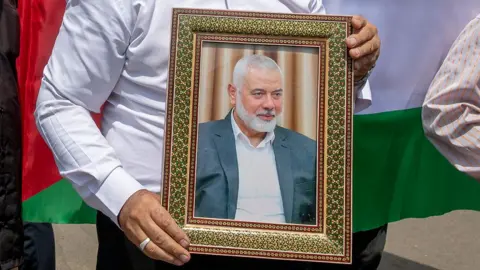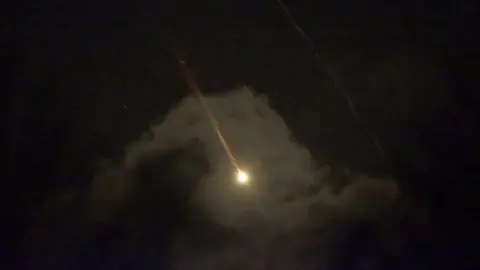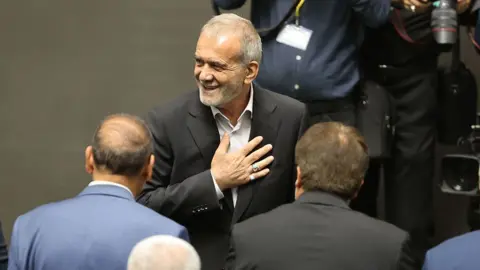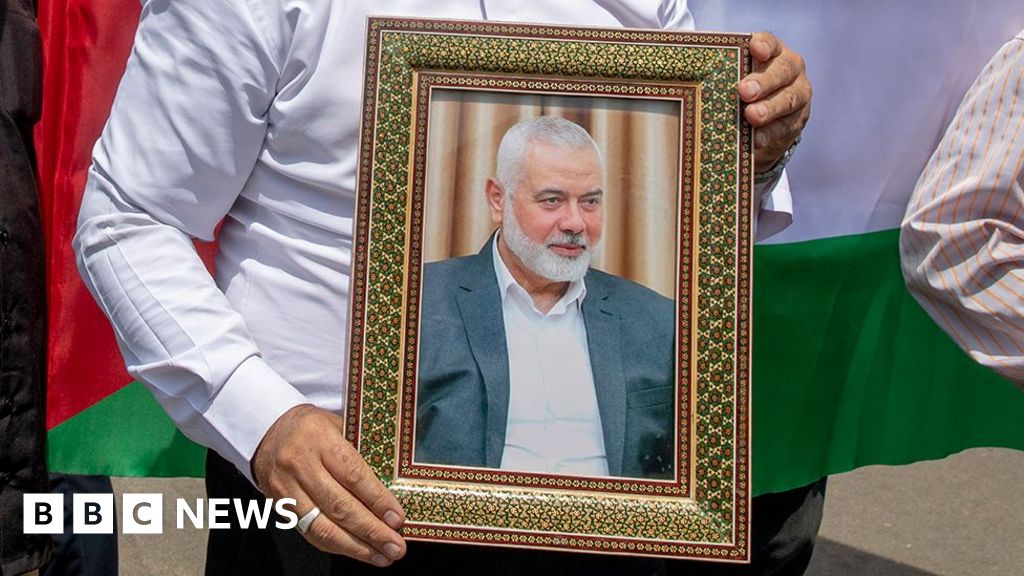 Getty Images
Getty ImagesThe killing of Hamas’s political leader Ismail Haniyeh in Tehran represents a major escalation in the tensions between Iran and Israel.
Iran’s supreme leader Ayatollah Khamenei has blamed Israel for the air strike, and said the killing required “a harsh punishment”.
The country’s new president Massoud Pezeshkian echoed this, saying: “We will make the occupying terrorist regime regret its action.”
Israel has yet to respond but has previously vowed to eliminate Hamas’s leaders following the 7 October attack launched by the group.
Iran says Mr Haniyeh and his bodyguard were killed at a guest house in northern Tehran at 02:00 local time by a missile fired from beyond Iran’s borders.
The immediate concern now is Iran’s response – what shape it might take and whether it would inflame tensions in the region, which are already at an all-time high.
In April, Iran fired more than 300 missiles and drones at Israel in reaction to the killing of seven of its officers – including a top commander of its Quds Force – in the Syrian capital Damascus.
The action was unprecedented in its scope and seriousness, although Israel – together with the US and a number of regional and international partners – managed to destroy almost all the Iranian missiles and drones.
 EPA
EPAIt’s thought Iran could now unleash an attack of a similar kind on Israel. Tehran could also ask its proxy militias in the region to step up their attacks.
Lebanon’s Hezbollah already has a reason of its own to escalate its cross-border missile war with Israel. The assassination of Mr Haniyeh came only a few hours after the killing of one of the group’s own senior military commanders in southern Beirut.
Already there are commentators in the region who believe the tensions between Israel and Hezbollah could themselves spark a full-scale war.
Mr Haniyeh was in the Iranian capital to take part in yesterday’s swearing-in of newly elected president Massoud Pezeshkian.
Mr Pezeshkian has reacted to the killing on X, saying that while yesterday he was raising his hand in parliament, today he has to shoulder Mr Haniyeh’s coffin.
 EPA
EPAThe new Iranian president is viewed as a relatively moderate figure, who has spoken previously about mending relations with the West through dialogue, and putting Iran back on the map as a responsible member of the international community.
However, Mr Pezeshkian will be under pressure to take a hard line on Israel and to support Iran’s proxy militias in the region.
But ultimately, it is the supreme leader and the Revolutionary Guard that will decide on regional policies and Iran’s response.
Reports from Tehran say the country’s national security council has held an emergency meeting at Ayatollah Khamenei’s residence. What has been decided has not been made public, but the shape and timing of Iran’s response are the questions most likely to have been discussed.
Iran may decide to move quickly, given that the targeted killing is a major loss of face for Tehran.
Does this make all-out war in the region more likely? It is difficult to say. Nobody appears to want such an outcome at the moment, but wars are not always the result of calculated risks.


